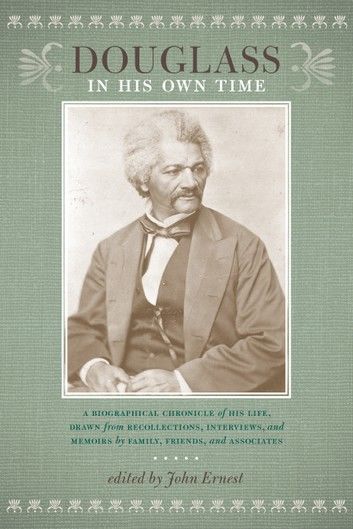One of the most incredible stories in American history is that of Frederick Douglass, the man who escaped from slavery and rose to become one of the most celebrated and eloquent orators, writers, and public figures in the world. He first committed his story to writing in his 1845 autobiography Narrative of the Life of Frederick Douglass, an American Slave. Over the course of his life, he would expand on his story considerably, writing two other autobiographies, My Bondage and My Freedom and Life and Times of Frederick Douglass, as well as innumerable newspaper articles and editorials and orations.
As valuable as these writings are in illuminating the man, the story Douglass told in 1845 has become rather too easy to tell, obscuring as much as it reveals. Less a living presence than an inspiring tale, Frederick Douglass remains relatively unknown even to many of those who celebrate his achievements. Douglass in His Own Time offers an introduction to Douglass the man by those who knew him. The book includes a broad range of writings, some intended for public viewing and some private correspondence, all of which contend with the force of Douglass’s tremendous power over the written and spoken word, his amazing presence before crowds, his ability to improvise, to entertain, to instruct, to inspire—indeed, to change lives through his eloquent appeals to righteous self-awareness and social justice. In approaching Douglass through the biographical sketches, memoirs, letters, editorials, and other articles about him, readers will encounter the complexity of a life lived on a very public stage, the story of an extraordinary black man in an insistently white world.









